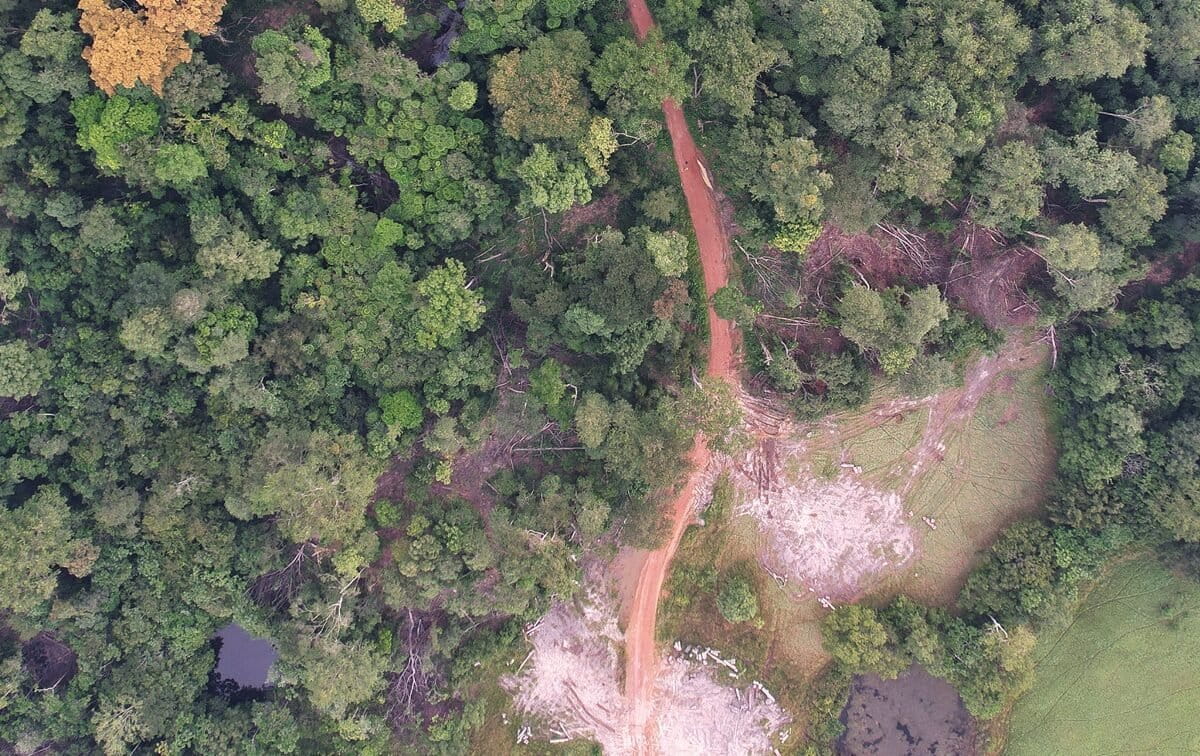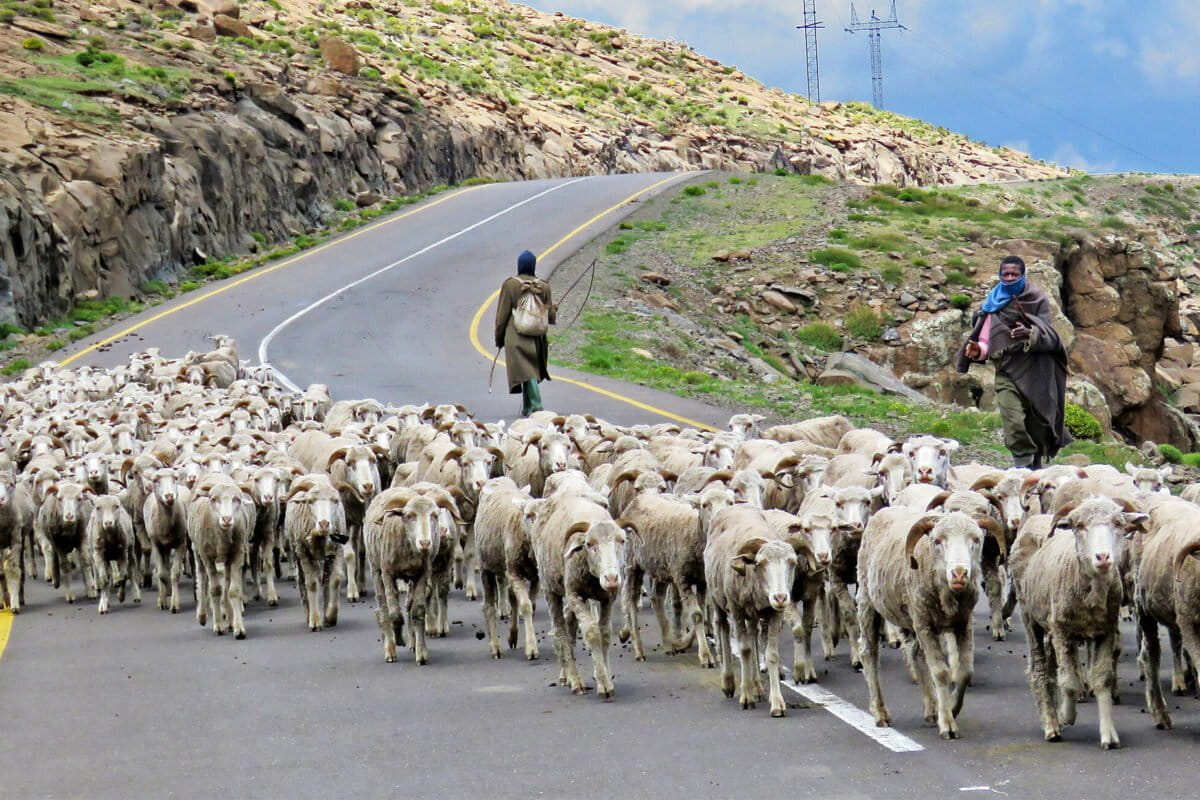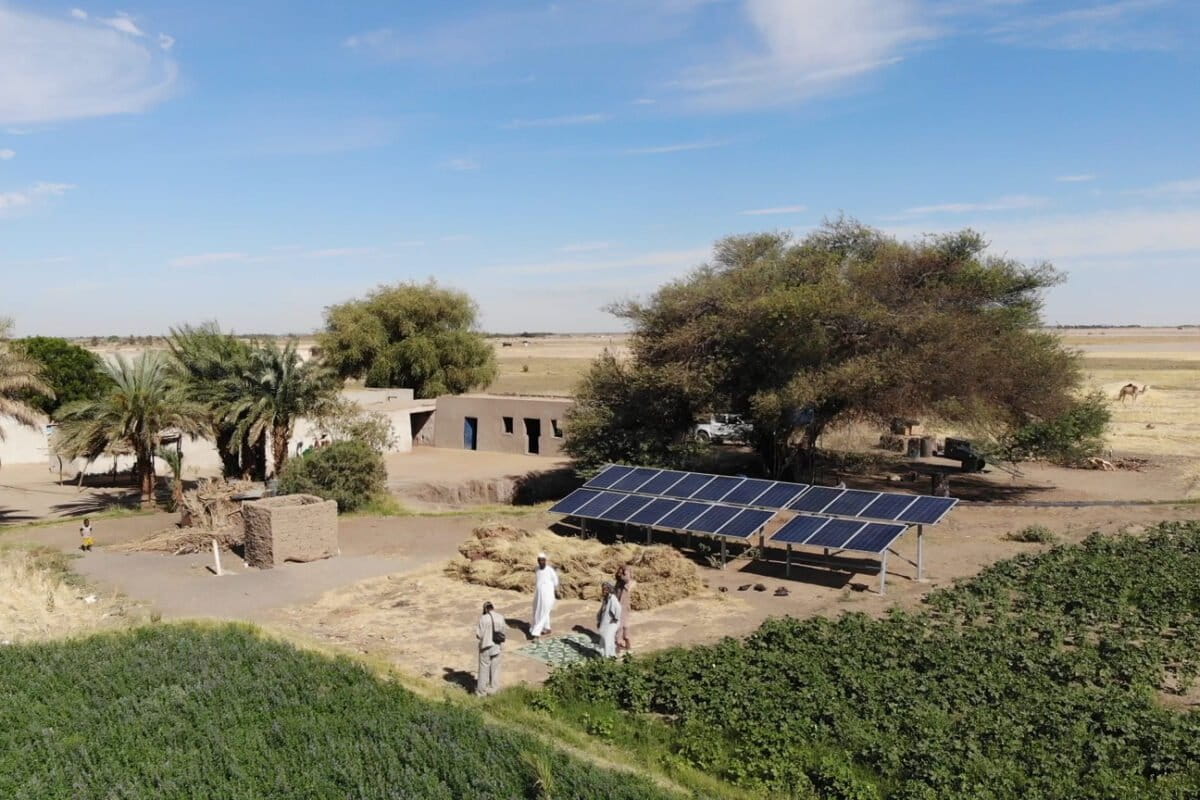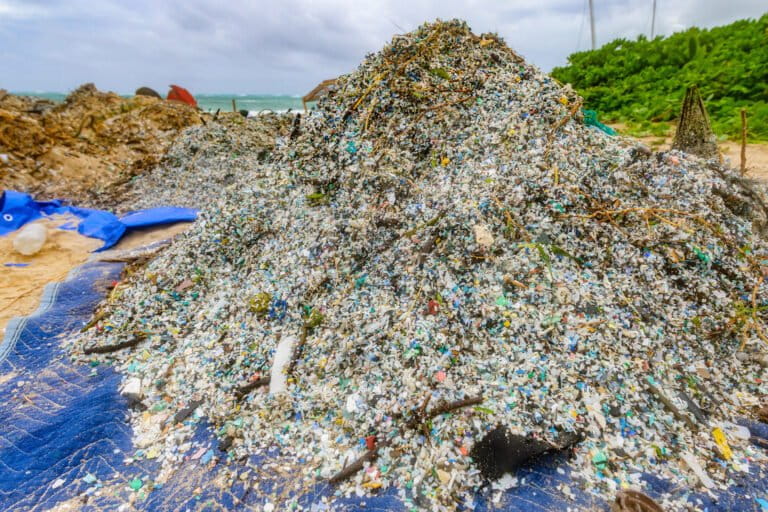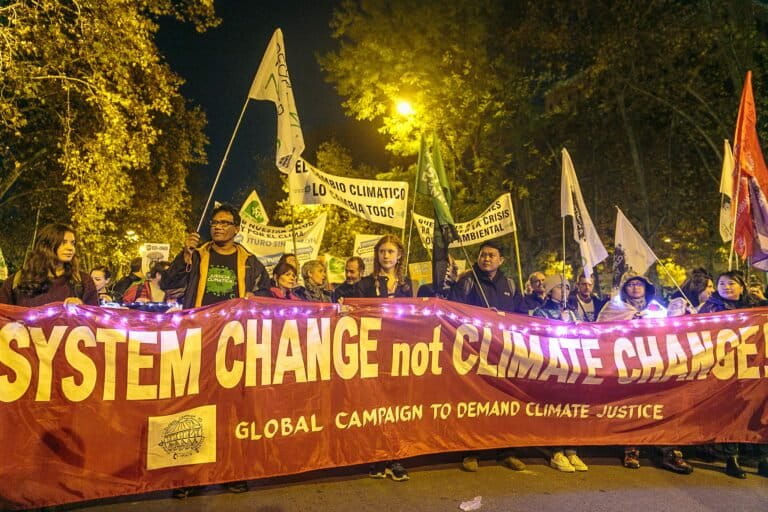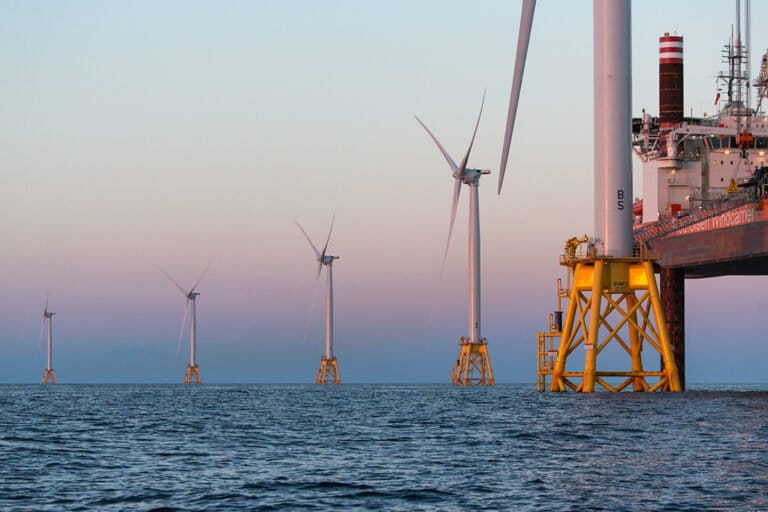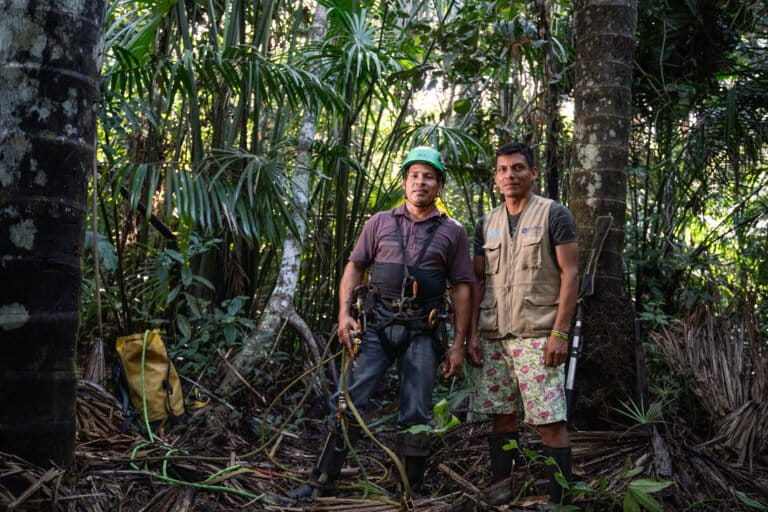An Interview with Michael Brune, executive director of the Rainforest Action Network
Savvy environmentalists challenge corporations to go green
An Interview with Michael Brune, executive director of RAN
Rhett A. Butler, mongabay.com
January 29, 2007
Increasing rates of tropical deforestation in the 1970s and 1980s helped trigger the rise of several forest activist groups specifically interested in rainforests. Among the earliest of these organizations was the Rainforest Action Network (RAN). Founded in 1985 by Randall Hayes, RAN lead its first direct campaign in 1987 against Burger King, which at the time was using beef raised on deforested lands in Central America. In response to the nationwide boycott, which caused sales to drop 12%, Burger King canceled $35 million worth of beef contracts from the region and announced they would no longer import beef from the rainforest. Hailed as a major victory for rainforest protection, RAN initiated consumer boycotts of other firms engaged in destructive practices, eventually developing an effective strategy for promoting change at the corporate level.
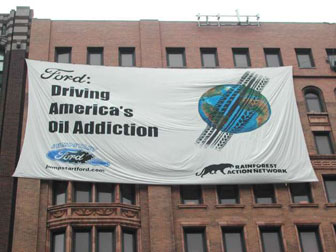
FORD DEARBORN BANNER. June 2003: Clean car activists launch the Jumpstart Ford campaign by hanging a banner from the roof of the 14-story Griswold Building in downtown Detroit on the eve of Ford Motor Company’s 100th anniversary. |
Today San Francisco-based RAN has expanded well beyond its original mission of protecting rainforests. Recently dubbed “the most savvy environmental agitators in the business” by the Wall Street Journal, the small but efficient organization (36 staff members and a $3 million budget) pressures some of the world’s largest and most respected firms to adopt wide-ranging green policies that impact everything from where they source their energy to how they finance development projects.
Initially engaging firms with dialog, RAN is not afraid to employ traditional activist tactics — including boycotts and protests — to win over targeted companies that are slow to respond.
“Our corporate campaigns seek to push companies to balance profits with principles, to show that it is possible to do well by doing good,” explains RAN on its web site. “We publicly applaud and support political and corporate leaders who show strong leadership and innovation in advancing sustainability. Sadly, many companies require more motivation, and our campaigns leverage public opinion and consumer pressure to turn the public stigma of environmental destruction into a business nightmare for any American company that refuses to adopt responsible environmental policies.”
While some of their tactics may be controversial, they are certainly effective. To date RAN has won over Citigroup, Bank of America, JP Morgan Chase, Goldman Sachs, Home Depot, and Boise Cascade.
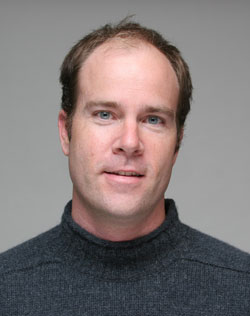
Mike Brune. PHOTO CREDIT: RAN |
Michael Brune, executive director of RAN, says that while the RAN’s tactics put pressure on corporations, “green ethics” are also a smart economic policy that make sound business sense.
“I believe that we can find solutions to environmental problems that can benefit multiple sides,” he said. “[RAN believes] that corporations and governments can transform themselves, and can actually play an important role in slowing down climate change and protecting forests.”
Brune, who may not seem like the stereotypical environmentalist with dual degrees in Economics and Finance from West Chester University, says that he is cautiously optimistic for the future when it comes to corporate interest in the environment.
“The debate has shifted: it’s no longer a question of whether the environment is in trouble, it’s a question of how bad the damage is and what must be done to reverse it. Environmentalism is becoming mainstream, and the challenge ahead will be to keep offering solutions that the public, big business and governments around the world will embrace and implement.”
Brune elaborated on RAN’s tactics and broader philosophy in a January 2007 conversation with Rhett A. Butler of mongabay.com.
Mongabay: How did you come to be so passionate about rainforests?
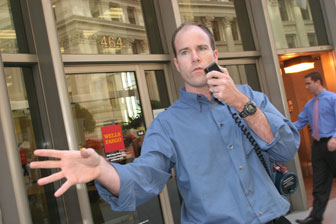
Mike Brune. PHOTO CREDIT: Eric Slomanson |
Brune: There are so many ways to answer that question. Because they’re beautiful, inspiring, and vital to all life on the planet, that’s certain. For me personally, protecting rainforests is an issue of basic justice and common sense. What’s the better use of an ancient temperate rainforest: as decking material and newsprint, or as a thriving, healthy intact ecosystem that purifies water, absorbs carbon, and supports more species than we can even identify? (You can guess my answer.) More broadly, I choose to work on environmental issues because .
Mongabay: What is RAN’s approach to saving rainforests? How does raising awareness through education here in the U.S. rate as a priority?
Brune: RAN believes that the only way to permanently save rainforests is to transform the underlying economic and social factors that are causing their destruction. We believe that large corporations, supported by government, find it too easy to liquidate rainforests for short-term gain. We also believe that protecting rainforests is a smart economic policy.
Our primary approach has been to challenge Corporate America to stop harming, and start helping, to protect rainforests. One of our campaigns has been to push the logging industry to stop its logging in old growth forests and shift to more sustainable logging practices. Along with a coalition of environmental groups, we’ve had some early success in convincing major wood and paper retailers — from Home Depot and Lowe’s to Kinko’s and others — to not sell or use any wood or paper from old growth forests. This change in demand from the marketplace has helped to protect millions of acres of rainforests in western Canada, Chile, Indonesia and elsewhere.
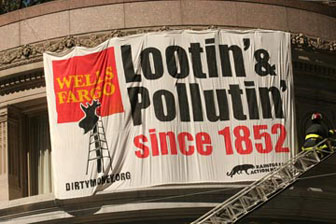
WELLS FARGO LOOTIN’ AND POLLUTIN’ BANNER. Activists hang a banner off the roof of a Wells Fargo branch in San Francisco. Wells Fargo is a top financier of destructive oil, coal, logging, and mining operations that contribute to global warming, ecosystem destruction, and human rights abuses. Photo (c) Eric Slomanson / Zuma Press. |
Other campaigns that we run out of our offices include an effort to get Wall St. to show that it’s possible to do well by doing good, and phase out any investments in projects that clear or degrade primary forests. We’ve been successful negotiating policies with companies such as Citigroup, Bank of America, JP Morgan Chase, Goldman Sachs and others. We’re also taking on climate change as a primary challenge, due to the threats posed by climate change to rainforests and the entire biosphere. Currently, we’re challenging plans by Texas utility company TXU to build an astonishing 11 new pulverized coal-fired power plants in Texas, which would emit more than 78 million pounds of carbon dioxide each year, or more than twice the entire CO2 reductions commitments made by Canada under Kyoto.
Underlying all this work is grassroots organizing and education. We think education is vital, and is the first step in a two-step dance for social change: education and action. Both are necessary to make the world a better place.
Mongabay: Since the 1990s RAN seems to have shifted from an emphasis on “civil disobedience” and other traditional activist approaches to sitting down with executives in boardrooms discussing issues and airing concerns face-to-face. Do you think this portends a wider shift in strategy on the part of green advocacy groups or merely diversification of tactics? Has this made RAN’s efforts for effecting corporate change more productive?
Brune: I don’t think we’ve shifted from one to the other, but have more fully embraced both elements in our strategic campaigning. RAN continues to run hard-hitting campaigns that occasionally use civil disobedience to highlight an injustice against people and the planet. At the same time, we think it is equally important to engage in thoughtful, tough discussions with corporate and political leaders to develop practical solutions to the world’s most pressing problems.
I think that it’s true that more environmental groups are becoming savvy to the culture and language of business, and are adapting their programs accordingly. Mostly, this is a good thing. I sometimes like to think of RAN as “hopeful skeptics”; we believe that corporations and governments can transform themselves, and can actually play an important role in slowing down climate change and protecting forests and the rights of their inhabitants. At the same time, we won’t be fooled by double-speak and false promises of future action. This attitude is the motivation behind much of our work.

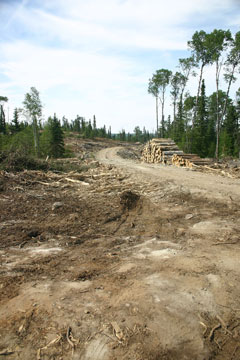
|
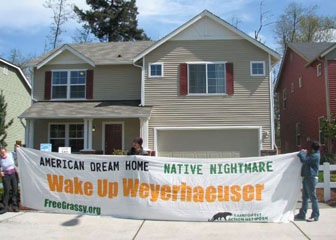
Left: GRASSY NARROWS LOGGING. CSA-certified clearcuts on Grassy Narrows traditional territory in northern Ontario by Abitibi Consolidated to feed the Weyerhaeuser iLevel mill in Kenora. PHOTO CREDIT: David Sone / RAN. Above: RAN activists join Bonnie Swain of the Grassy Narrows First Nation in calling attention to wood products clear-cut without community consent from Grassy Narrows traditional territory and used to build Quadrant homes in the Puget Sound area of Washington State. Quadrant Homes is a subsidiary of Weyerhaeuser. PHOTO CREDIT: RAN. |
Mongabay: On a broader level, how can the green movement better position itself to avoid being just another “special interest”?
Brune: I don’t think this is as much of a problem as it was even just 5-10 years ago. Environmentalism is becoming more popular again, and the environmental movement is becoming much broader and more inclusive. Just in the past year, we’ve seen evangelical Christians become much more vocal and organized as they fight to protect the environment — fighting mountaintop removal mining practices in the southeastern United States and taking a stance on climate change. We’re seeing a lot of business leaders taking stands on environmental issues. The main theme of the recent L.A. Auto Show was alternative fuel technology, which certainly wouldn’t have been the case 20 — or even five — years ago. There’s a very strong trend here of the environmental movement not just being limited to activists on the coasts of the U.S., but being embraced by all sectors of society.
Environmentalists have fought an uphill battle in public policy circles the past several years, but this last election gives us all hope that better times are ahead. The debate has shifted: it’s no longer a question of whether the environment is in trouble, it’s a question of how bad the damage is and what must be done to reverse it. Environmentalism is becoming mainstream, and the challenge ahead will be to keep offering solutions that the public, big business and governments around the world will embrace and implement.
Mongabay: Since Katrina and the spike in energy prices have you noticed a shift in public sentiment with regard to environmental concerns? Has this helped RAN?
Brune: One trend we’ve seen over the last year or so is a dramatic increase in awareness about climate change. A number of factors explain that; the first being that most people are simply noticing changes in the weather and seeing more extreme weather events on the news. Americans and people around the world saw what happened with Hurricane Katrina and how violent weather events can wreak havoc on the lives of millions. I also think that Al Gore has done a fantastic job at making these environmental issues — and climate change in particular — more central to people’s lives. He has really presented a strong case for the dangers of climate change.
Any time there is a heightened focus on environment and climate concerns, it helps us get our message out, though it is unfortunate that such extreme, tragic events like Katrina are so often the catalyst for increased awareness. The hope is always that increased awareness will lead to stronger efforts to improve the environment so we can mitigate the effects of extreme climate events in the future.
Mongabay: What are some basic steps to being better stewards of the environment in general?
Brune: The first step is to become aware of the major issues in your backyard, state, country and globally. There are a variety of ways to get involved and to take action. We can act as consumers, by voting with our dollars to support sustainable business — whether it’s buying FSC-certified wood or paper with the highest recycled content, or organic food, sweatshop-free clothing, etc. We can vote, as if our lives depended on it. We can act in our workplace, helping the companies with whom we work to be more environmentally responsible in the way they do business. We can also act as citizens, by helping corporations and political leaders (who need all the help they can get) to wake up and start taking real action to protect rainforests and the rest of the planet, before it’s too late.
There are plenty of ways to take action Check out RAN at



